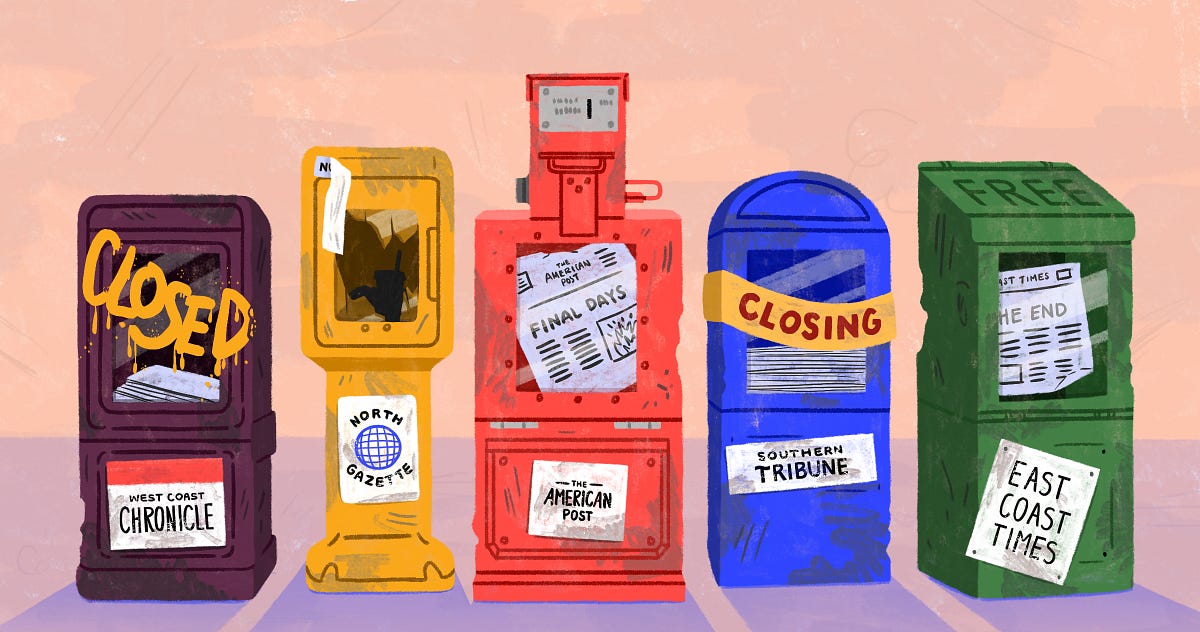
Engaged Reading Digest: listening, killing comments and getting visual
Another round-up of interesting reading about journalism and audience engagement
Today is technically my last working day of the year — the school holidays begin at 3.15pm this afternoon — so here's a pre-Christmas selection of reading for those of you interested in engaged journalism.
To engage, first you must listen
Hiding behind the most soul-destroying headline ever ("operationalize" is a word that you should only ever use when you've been hollowed out to a soulless shell of humanity…), this is actually quite an interesting read:
Here at KPCC, L.A.’s NPR station, we’ve been challenging our own assumptions about the definition of “news,” including who it’s for and how we find it. We got started with a series of experiments to design journalism for people who have traditionally been overlooked by public media.That sent us into communities with ears open for what kind of information people need versus the kind we think they should want.
It seems really obvious as a point: but it's not. Or, at least, as an industry we've been astonishingly poor at actually listening to our audiences rather than talking at them.
Next on their agenda: building the infrastructure to make this work in the future. Or should I say "on an on-going basis"?

What happens to ex-journalists?
I remember, as a 20-something features writer, noting that there were far fewer 40-somethings in the newsroom than 20-somethings. And I wondered what happened to them all. And this was in the 90s, when times still felt good.
2019 has seen a horrible cull of journalists in the digital sector - and this is a good look at what happened to some of them.

And here's a good companion piece:

Eight years ago, I was going through something very similar. What is it about journalism and laying people off just before Christmas?
How the BBC got good at Instagram
Facebook propaganda with some actually useful information in it:
Videos of police violence in Azerbaijan vanishing from Facebook
As a cleansing chaser to the previous link, here's something Facebook has some questions to answer about. A mix of hacking and Facebook action is removing some pretty important footage:

Another comment section falls
After 12 years, Crosscut is killing its comment section:
In the digital age, social media has largely replaced under-article forums. And the tenor of our comment sections has frequently been rife with bigotry, racism and deliberate misinformation that undermines our journalism. On a human level, those comments have real world effects on people who make themselves vulnerable by publicly sharing their stories.
With an audience staff of only three, they decided that they didn't have the resources to manage the problem. And this is interesting:
We analyzed our Disqus data and we found that roughly 17,400 comments were made on our site in 2019, but 45% came from just 13 people.
Comment sections can work, and work well — if you manage them well. But some subjects attract such a toxic response that any amount of management won't work.

Visual Journalism FTW
Another reminder that "journalism" and "writing" are not synonyms, especially on the internet:
Every reader’s jaw is hitting the floor, too. . . . And this is a case where visual journalism makes the point better than the 1,000 words. https://t.co/lbkbCrhK2D
— Aaron Zitner (@aaronzitner) December 19, 2019
There might be more to come next week: the combination of being self-employed and running your own blog means that I'm never really on holiday…
But if not, have a very Merry Christmas, if you celebrate it.
Sign up for e-mail updates
Join the newsletter to receive the latest posts in your inbox.














